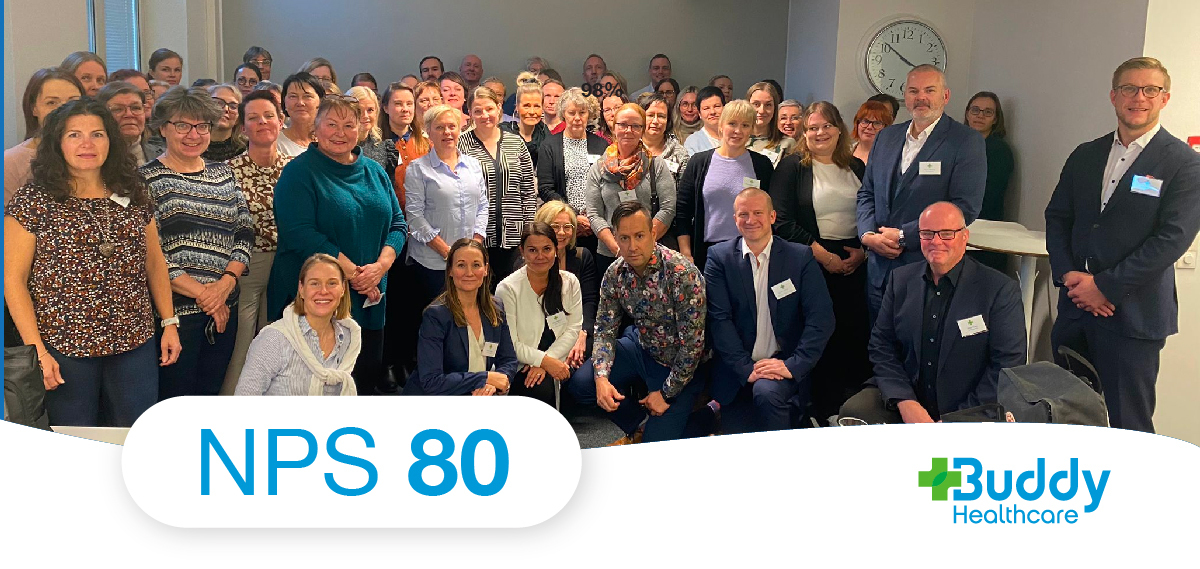The Cost of Overworked Care Personnel & Its Effects on Patients' Care
Challenges in obstetric hospitals: Why midwives are struggling to focus on the expectant mother
Every day more than 2000 babies are born in Germany. For mothers, their partners, and family members this is a life-changing moment. For midwives, this is their daily work in the delivery room.
Our previous blog post introduced that in some clinics an alarming 1/3 of all new mothers leave the hospital without any access to comprehensive postpartum care, due to the shortage of midwives in Germany. Mothers and their newborns typically leave the clinic within 48 hours after giving birth. Besides the required check-ups, new mothers are no longer supported by any healthcare professionals, even though German insurance would cover daily midwife visits for up to two weeks and every 2-3 days for several weeks after that. There are just not enough midwives to provide adequate postpartum care.
Through utilization of the BuddyCare platform, midwives can easily manage patient guidance and provide instructions digitally. This care can be given over a longer period of time than just the hospital length of stay can provide. Mothers have 24/7 access to necessary information and can communicate with their birth clinic through a secure two-way channel.
Taking a closer look at the status quo in birthing clinics, hospital management faces various challenges needed to be addressed.
The Status Quo in obstetric departments
According to the report ‘Stationary Midwifery Supply’ for the German Ministry of Health, 41% of hospitals with obstetric departments had difficulties filling the open positions for midwives in 2018. In addition to the shortage of midwives, the number of women coming to the hospital via the outpatient clinic in need of services from the obstetric department has significantly increased. This results in almost 90% of the midwives working more than 30 hours a week to regularly take on overtime work.
Due to the lack of midwives and other limiting factors, hospitals are forced to reject expectant mothers and cannot admit them to the delivery room. A survey by the German society for gynecology and obstetrics showed that in a time period of six months more than 35% of the clinics had at minimum once rejected a pregnant woman in labour. An already stressed woman is left to deal with an even more stressful situation.
Considering the daily work of a midwife in the obstetric department and the resource restraints within the workplace, the following challenges are affecting the work-flow significantly:
Challenges:
- - Midwives have to care for 3-5 mothers in labour simultaneously
- - Drastically increased documentation and administrative burden
- - The processes do not allow midwives to support labouring mothers as they see fit
- - Two-thirds of midwives have to constantly or often perform tasks outside their normal scope of responsibility
- - Midwives experience various interruptions when performing their actual work
As a result of these challenges in delivery rooms, hospital management with obstetric departments are exposed to dissatisfied employee feedback, and midwives less likely to take on overtime. The midwives are exposed to increased stress, potentially leading to more sick days, or even midwives resigning from the hospital as their employer. For the hospital management, this means high costs and the great challenge to overcome the gap in human resources.
Changes need to be implemented to better support midwives in their daily work, so that patient care and overall employee health and satisfaction can be improved and the risk for incident or error can be reduced. Considering that midwives have to accomplish many tasks simultaneously while often being interrupted and overworked, it seems that a solution to support this group of medical providers is long overdue.
How to overcome these challenges:
We live in a time where digital solutions can automate many of the repetitive and overwhelming administrative tasks that can otherwise inhibit a smooth workflow.
The BuddyCare platform provides obstetric departments with digital care coordination and automated collection of data. The solution supports existing hospital processes and frees up time for midwives to concentrate on their actual work and on their patients: mothers in labour and newborns. Documentation and administrative burden are reduced as midwives automatically receive answers expectant mothers have given in questionnaires. Additionally, the implementation of the BuddyCare solution can provide summary reports based on collected data to hospital management to support resource planning.
Interested in hearing more?
Reach out to us & let’s schedule a meeting.




